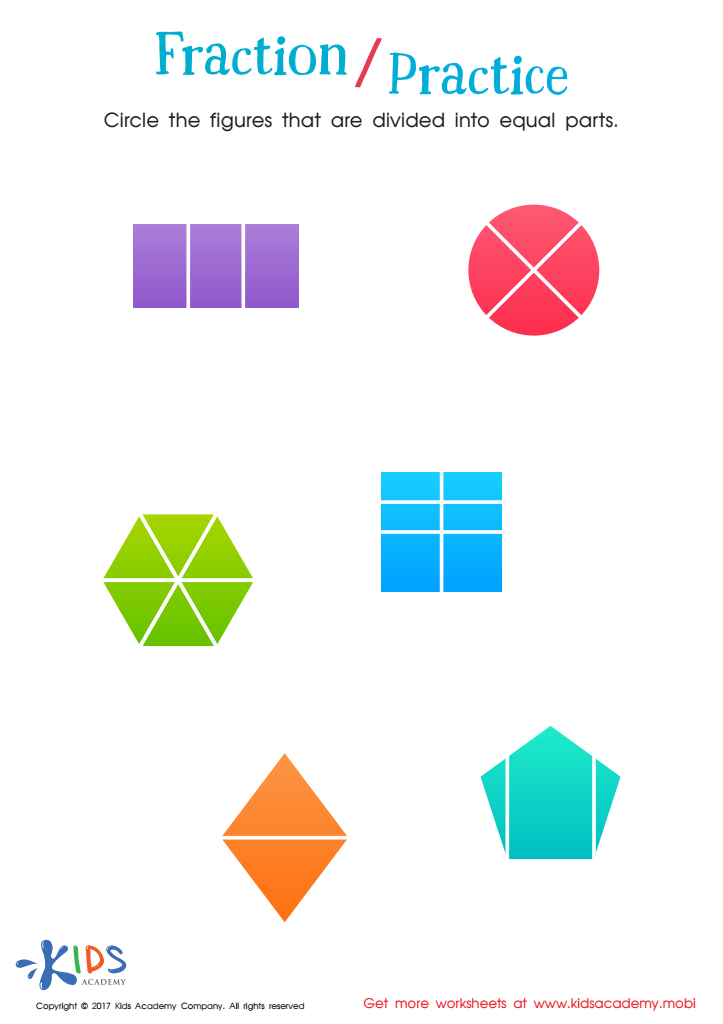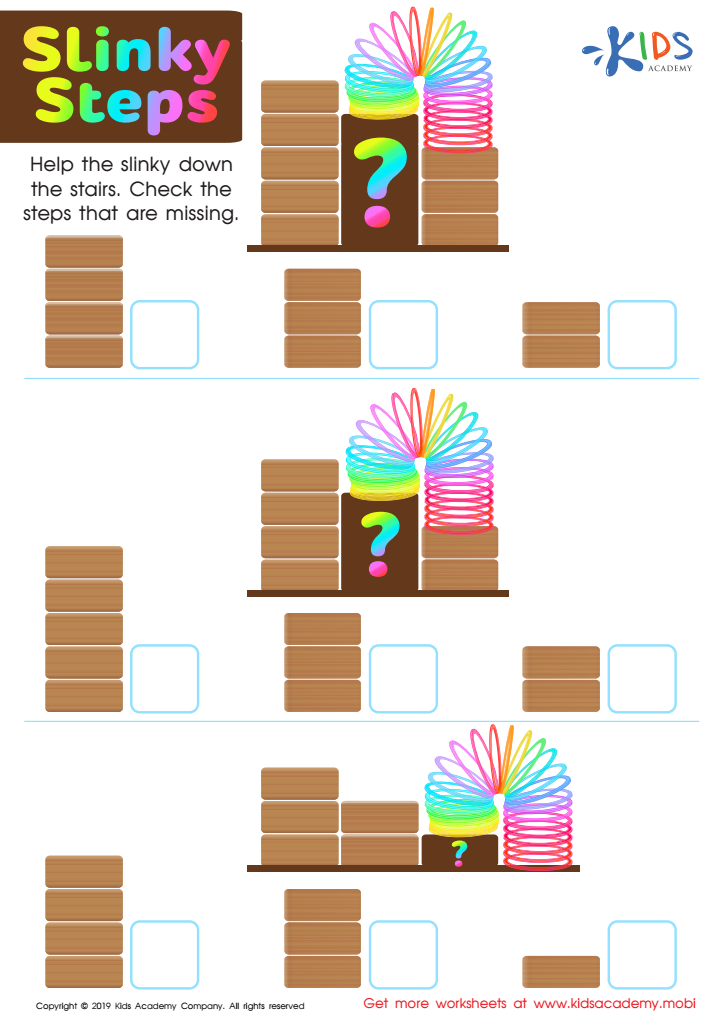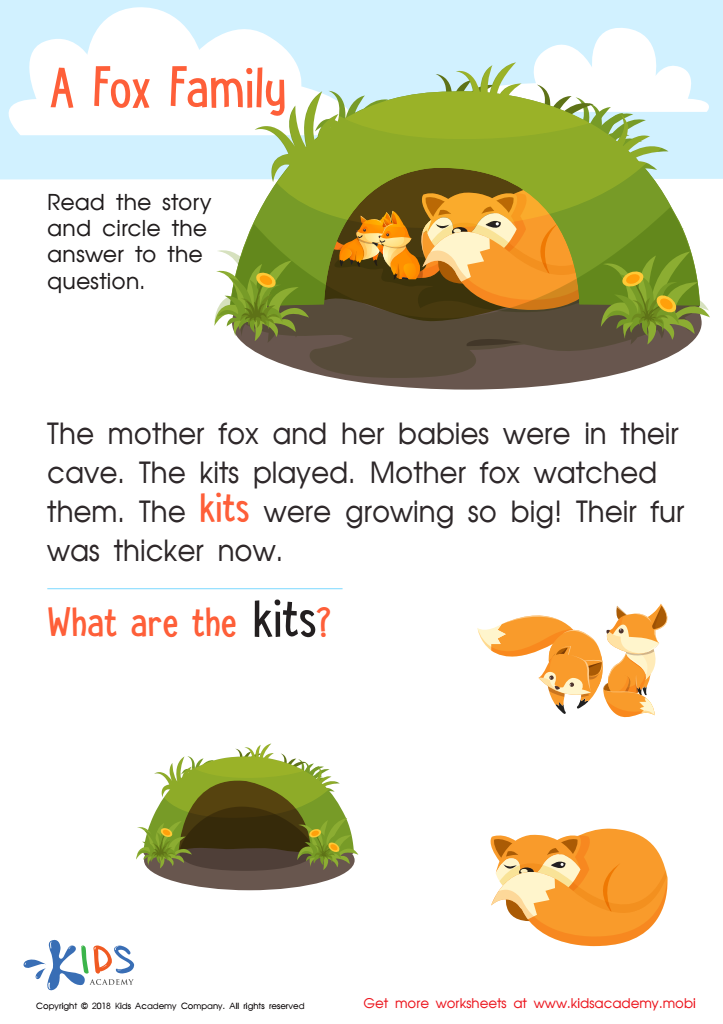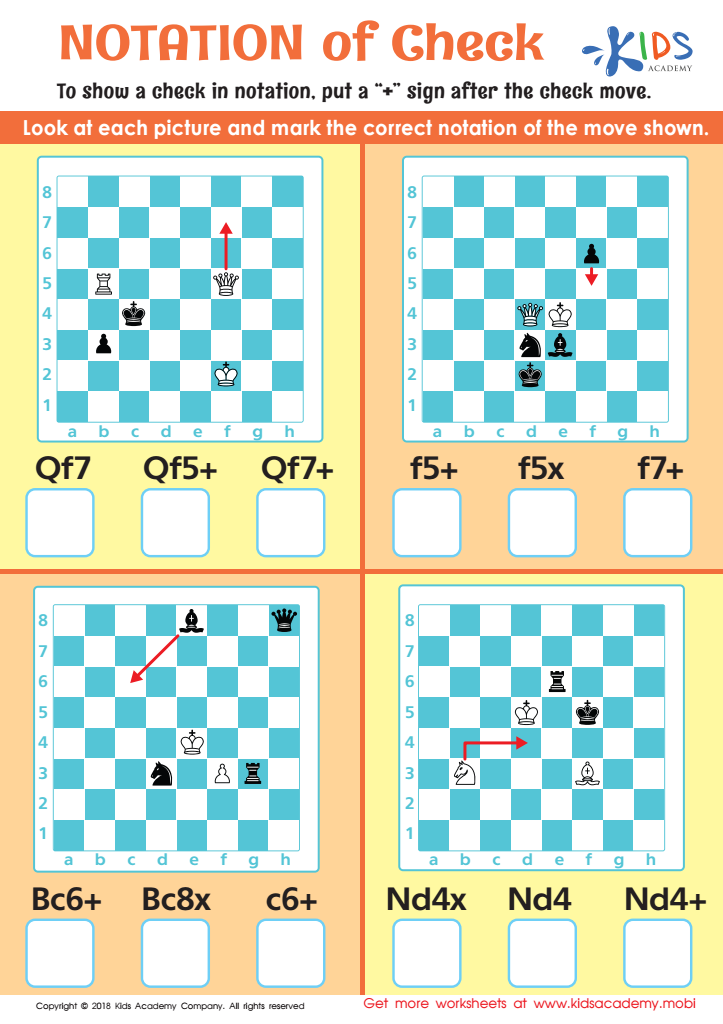Improving calculation skills Worksheets for Ages 3-7
7 filtered results
-
From - To
Enhance your child's math abilities with our "Improving Calculation Skills" worksheets, specially designed for ages 3-7. These engaging, age-appropriate worksheets focus on building fundamental math skills, such as addition, subtraction, number recognition, and counting. Through fun exercises and colorful illustrations, young learners develop confidence and proficiency in key mathematical concepts. Perfect for homeschooling, classroom activities, or supplemental practice at home, our worksheets aim to foster a love for math while reinforcing essential skills. Explore our collection today and watch your child's numerical fluency grow! Ideal for little learners just starting their mathematical journey.


Fractions: Shapes Worksheet


Slinky Steps Worksheet


A Fox Family Worksheet


Notation of Check Worksheet
Improving calculation skills for children aged 3-7 is crucial for their cognitive development and future academic success. During these formative years, children’s brains are highly engaged in learning, making it the perfect time to introduce mathematical concepts. Mastering basic calculation skills helps build a strong foundation for more complex mathematics in later years.
Additionally, enhancing calculation abilities promotes critical thinking and problem-solving skills. Children learn to recognize patterns, categorize objects, and make connections, which are essential for logical reasoning. This foundational knowledge not only aids in mathematics but also translates into other subjects, like science and reading.
Moreover, focusing on calculation skills fosters confidence. As children gain proficiency, they develop a sense of achievement and a positive attitude towards learning. Parents and teachers play a vital role in facilitating this growth by providing engaging and age-appropriate activities.
Finally, improving these skills helps children understand everyday situations, such as counting money, sharing, and telling time, which are important for daily life and social interactions. Therefore, investing time and energy into enhancing calculation skills sets children on a path to lifelong learning and success.
 Assign to My Students
Assign to My Students



















